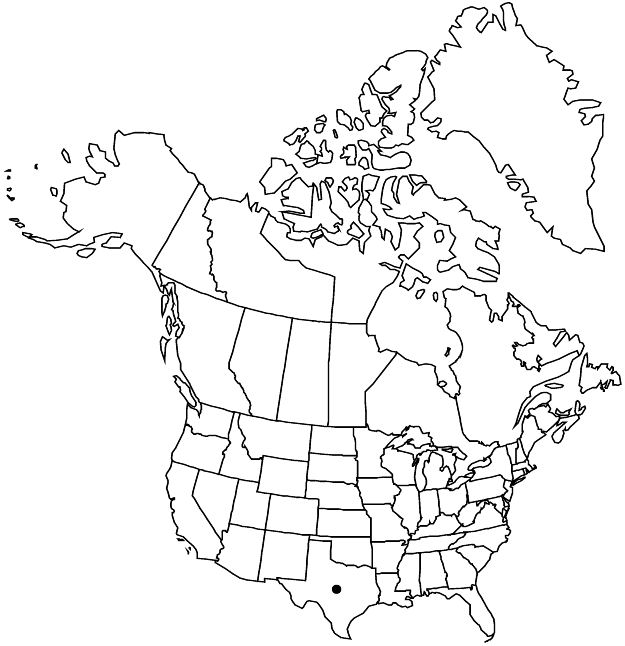Difference between revisions of "Philadelphus texensis"
J. Arnold Arbor. 37: 54. 1956.
FNA>Volume Importer |
imported>Volume Importer |
||
| (4 intermediate revisions by 2 users not shown) | |||
| Line 48: | Line 48: | ||
-->{{#Taxon: | -->{{#Taxon: | ||
name=Philadelphus texensis | name=Philadelphus texensis | ||
| − | |||
|authority=S. Y. Hu | |authority=S. Y. Hu | ||
|rank=species | |rank=species | ||
| Line 60: | Line 59: | ||
|publication year=1956 | |publication year=1956 | ||
|special status=Conservation concern | |special status=Conservation concern | ||
| − | |source xml=https:// | + | |source xml=https://bitbucket.org/aafc-mbb/fna-data-curation/src/2e0870ddd59836b60bcf96646a41e87ea5a5943a/coarse_grained_fna_xml/V12/V12_562.xml |
|genus=Philadelphus | |genus=Philadelphus | ||
|species=Philadelphus texensis | |species=Philadelphus texensis | ||
Latest revision as of 19:16, 5 November 2020
Shrubs, 6–15 dm. Stems spreading, green to yellowish, weathering grayish and striate, divaricately branched, moderately to sparsely strigose-sericeous; internodes 1.5–5.5 cm (long shoots), 0.2–2.2 cm (lateral branches); axillary buds exposed. Leaves: petiole 2–4.5(–8) mm; blade grayish or whitish abaxially, green adaxially, usually narrowly lanceolate to lance-ovate, sometimes ovate, (1–)1.6–3.3(–4.7) × (0.4–)0.5–1.1(–2.3) cm, ± herbaceous, margins usually entire, rarely sparsely serrulate, plane, sometimes drying revolute, abaxial surface densely and loosely strigose, hairs arched-twisted, 0.3–1.2 mm, with or without understory of coiled-crisped, slender hairs between raised veins, adaxial surface sparsely to moderately strigose, hairs antrorsely appressed, 0.4–0.9 mm, 1–3 hairs per mm of width. Inflorescences: flowers solitary. Pedicels 1–2(–4) mm, loosely strigose or glabrous. Flowers: hypanthium loosely strigose or glabrous; sepals ovate to ovate-lanceolate, 2.5–5.5 × 1–2.5 mm, apex obtuse to long acuminate-caudate, abaxial surface loosely strigose or glabrous, adaxial surface glabrous except ciliate and villous along distal margins; petals white, oblong-ovate to ovate, 8–10(–14) × 3.5–5(–10.5) mm, margins entire to undulate, apex obtuse to notched; stamens (11–)14–16(–24); filaments distinct, 1–4.7 mm; style 1, clavate, 1.9–3(–3.5) mm, slender base 0.5–2 mm; stigmatic portion obovoid, 1.2–1.7 × 1.1 mm. Capsules turbinate-spheroid, 3.5–5.5 × 3.5–5 mm, sepals at distal 1/3, tardily falling, capsule distal surface smooth or impressed in 4 vertical lines. Seeds short-caudate distally, 1–1.2 mm.
Distribution

Tex., n Mexico.
Discussion
Varieties 2 (2 in the flora).
A. E. Weakley (2002) found that the ITS sequences of Philadelphus texensis and P. mearnsii do not differ, suggesting that they are very closely related.
Selected References
None.
Key
| 1 | Leaf blade abaxial surfaces strigose and with understory of slender, white, tightly coiled-crisped hairs. | Philadelphus texensis var. texensis |
| 1 | Leaf blade abaxial surfaces strigose, without understory of white, tightly coiled-crisped hairs. | Philadelphus texensis var. ernestii |